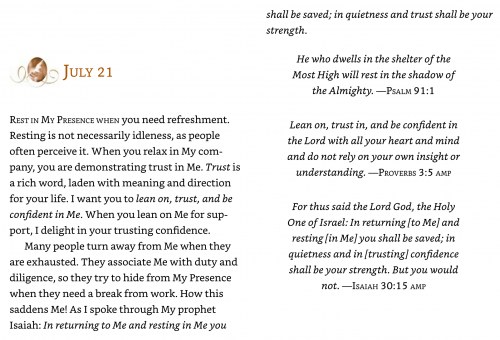Tuesday, July 21, 2020
She Does Not Run
Tuesday, July 21, 2020
One of my favorite things about Cynthia Bourgeault is the way she poses questions that get right to the heart of the matter. Her brilliant scholarship comes from the fullness of her being—body, heart, and mind. Her study of Mary Magdalene is no exception, as evidenced by the questions she asks at the end of this passage. Bourgeault writes:
[After seeing the risen Christ,] Mary went and announced to the disciples, “I have seen the Lord, and this is what he said to me” (John 20:14–18).
It is on the basis of this announcement that Mary earned the traditional title of “Apostle to the Apostles.” The first to witness to the resurrection, she is also the one who “commissions” the others to go and announce the good news of the resurrection. . . .
All four gospels witness to Mary Magdalene as the premiere witness to the resurrection—alone or in a group, but in all cases named by name. Given the shifting sands of oral history, the unanimity of this testimony is astounding. It suggests that among the earliest Christians the stature of Mary Magdalene is of the highest order of magnitude—more so than even the Virgin Mother (mentioned as present at the crucifixion in only one gospel and in none at the resurrection). Mary Magdalene’s place of honor is so strong that even the heavy hand of a later, male-dominated ecclesiology cannot entirely dislodge it.
All four gospels insist that when all the other disciples are fleeing, Mary Magdalene stands firm. She does not run; she does not betray or lie about her commitment; she witnesses. Hers is clearly a demonstration of either the deepest human love or the highest spiritual understanding of what Jesus was teaching, perhaps both. But why, one wonders, do the Holy Week liturgies tell and re-tell the story of Peter’s threefold denial of Jesus, while the steady, unwavering witness of Magdalene is not even noticed?
How would our understanding of the Paschal Mystery change if even that one sentence that I finally heard at Vézelay was routinely included in the Good Friday and Palm Sunday Passion narratives? What if, instead of emphasizing that Jesus died alone and rejected, we reinforced that one stood by him and did not leave?—for surely this other story is as deeply and truly there in the scripture as is the first. How would this change the emotional timbre of the day? How would it affect our feelings about ourselves? About the place of women in the church? About the nature of redemptive love?
And above all, why is the apostle to the apostles not herself an apostle? [1]
Richard again: Let’s hold Cynthia’s questions in our minds and hearts that they might stir us to “epiphanies” of our own on the nature of steadfast love. Mary Magdalene’s love for Jesus shows what it means to have one person hold fast to us in our hour of need, despite the apparent hopelessness of it all.
